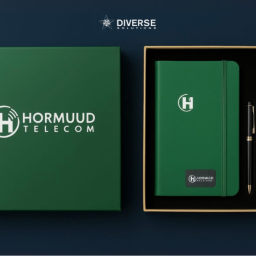
Corporate gifting is a longstanding practice, used to show appreciation, strengthen business relationships, and enhance company culture. But there’s a surprising trend in corporate gifting that’s raising questions about fairness: are women receiving different, often gender-stereotyped, gifts compared to men? And if so, what impact does this have on workplace culture and professional relationships?
The Perpetuation of gender bias in corporate gifting
Corporate gifts are meant to convey appreciation, but they also reflect a company’s culture, values, and sometimes unconscious biases. Research published in Gender in Management: An International Journal highlights how gender stereotypes frequently influence corporate gift selections, with women often receiving gifts like spa vouchers or beauty products, while men receive tech gadgets or sports-related items. This reinforces traditional gender roles and can unintentionally suggest assumptions about the recipient’s interests or professional abilities. These biases stem from deep-seated social stereotypes where women are often associated with beauty and self-care and men with productivity and performance. According to a report by the Corporate Gift Association, over 60% of corporate gift buyers admit they tend to choose “softer” gifts for female employees and clients and “functional” gifts for males. Such preferences, even if unconscious, reflect and reinforce stereotypes that are out of place in a modern, inclusive workplace.
The Impact of Gendered Gifting
Gender bias in corporate gifting can lead to unintended consequences, affecting various areas in a professional setting.
Professional relationships
Corporate gifting plays a role in building professional relationships, but gendered gifting can backfire if the gift feels patronizing or irrelevant. For example, gifting a woman a scented candle while giving a man a high-end leather planner may imply differing levels of professional importance. According to a study in Organizational Behavior and Human Decision Processes, employees who receive gifts they find stereotypical, or patronizing are less likely to perceive the gift-giver as genuine. This can lead to discomfort in professional interactions and impact relationship-building efforts.
Employee morale and retention
Employee gifts, whether for holidays, birthdays, or special achievements, help boost morale and express appreciation. However, if employees notice a pattern of gendered gifting, it could negatively affect morale. Female employees may feel undervalued or seen through a stereotypical lens, which can erode their motivation and sense of belonging. A report by the Society for Human Resource Management found that companies with equitable corporate gifting practices report a 20% higher employee satisfaction rate, contributing to stronger retention rates overall.
Brand reputation
A company’s corporate gifting policy says a lot about its values. In an era where inclusivity and diversity are essential components of a strong brand, gendered gifting can harm a company’s reputation. In some cases, publicized corporate gift-giving faux pas have led to backlash on social media, damaging the brand’s image. In today’s competitive market, consumers and potential employees increasingly favor brands that demonstrate respect for all individuals, regardless of gender.

Strategies for Gender-Neutral Corporate Gifting
To foster a more inclusive environment, companies can adopt gender-neutral corporate gifting practices. Here are several strategies to consider:
Personalized gifting
Personalized gifts take the focus off gender and put it on the individual. Instead of relying on stereotypes, companies can let employees choose from a catalog or complete a preferences survey. A Harvard Business Review article highlights that 78% of employees feel more satisfied when perks match their personal tastes.
Experiential gifting
Experiential gifts, like tickets to a concert, dinner vouchers, or even professional development courses, work well as they don’t rely on assumptions about gender preferences. Such experiences cater to a wide range of interests and create memorable moments for employees or clients. According to a study in The Journal of Consumer Research, experiential gifts tend to create a longer-lasting positive association with the gift-giver compared to physical items. Companies like Airbnb for Work have introduced experiential gift options, allowing recipients to pick activities they truly enjoy.
Inclusive language and imagery
Ensuring that corporate gifting practices reflect inclusivity involves paying attention to language and imagery. Instead of “gifts for him” and “gifts for her” sections in corporate gifting catalogs, companies can categorize gifts based on interest or activity type, like “wellness,” “tech,” or “travel.” This helps remove gender bias from the equation and makes recipients feel valued as individuals. Additionally, companies should make an effort to include diverse imagery in promotional materials to appeal to employees of all backgrounds.

Final Thoughts
The way companies approach corporate gifting can reflect a lot about their values. Choosing gender-neutral corporate gifts helps foster inclusion, strengthen professional relationships, and boost brand reputation. This small step can make a big impact by ensuring everyone feels valued beyond outdated stereotypes.
For more insights on corporate gifting strategies and to explore a wide range of customizable eco-friendly options, visit Diverse Solutions.















